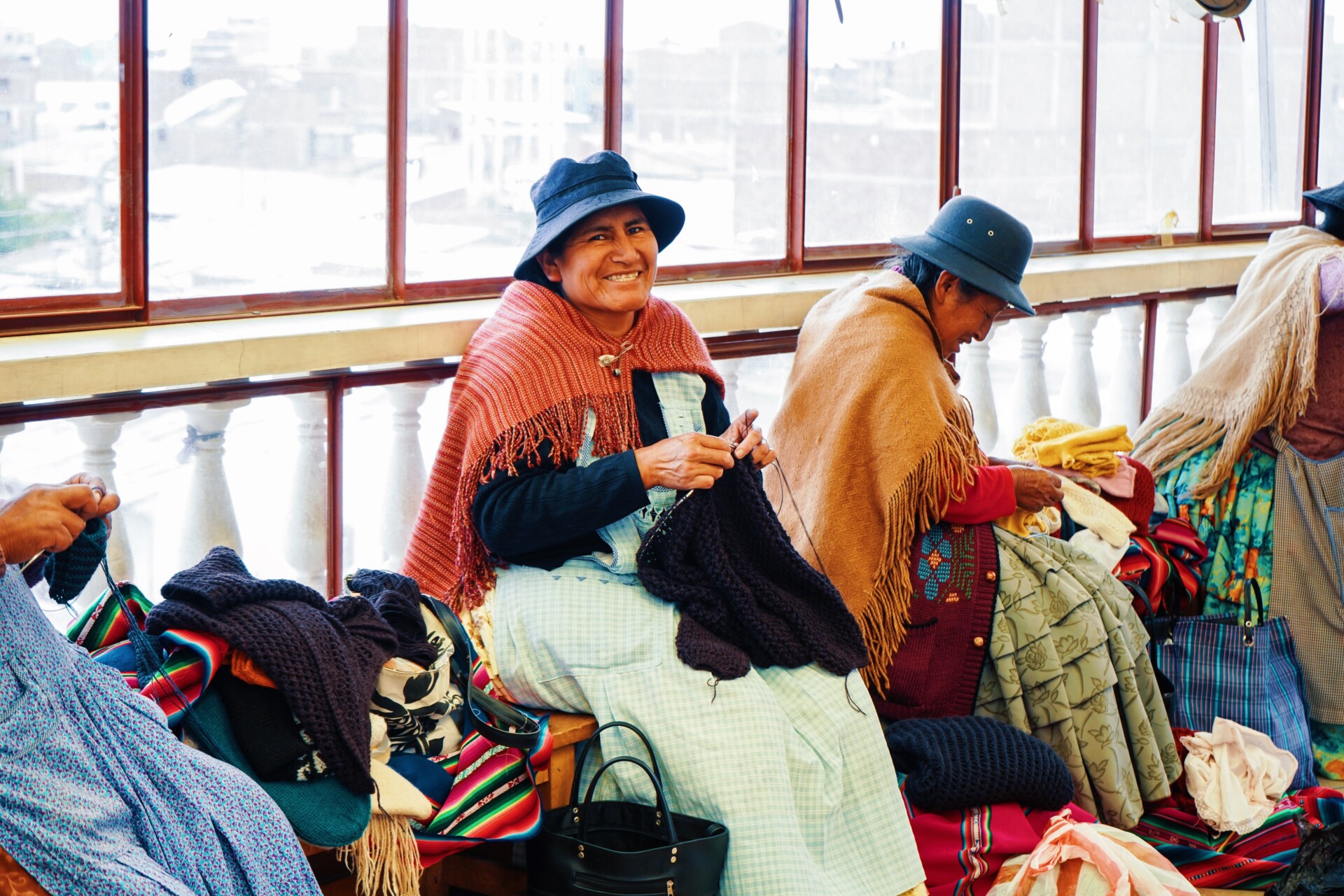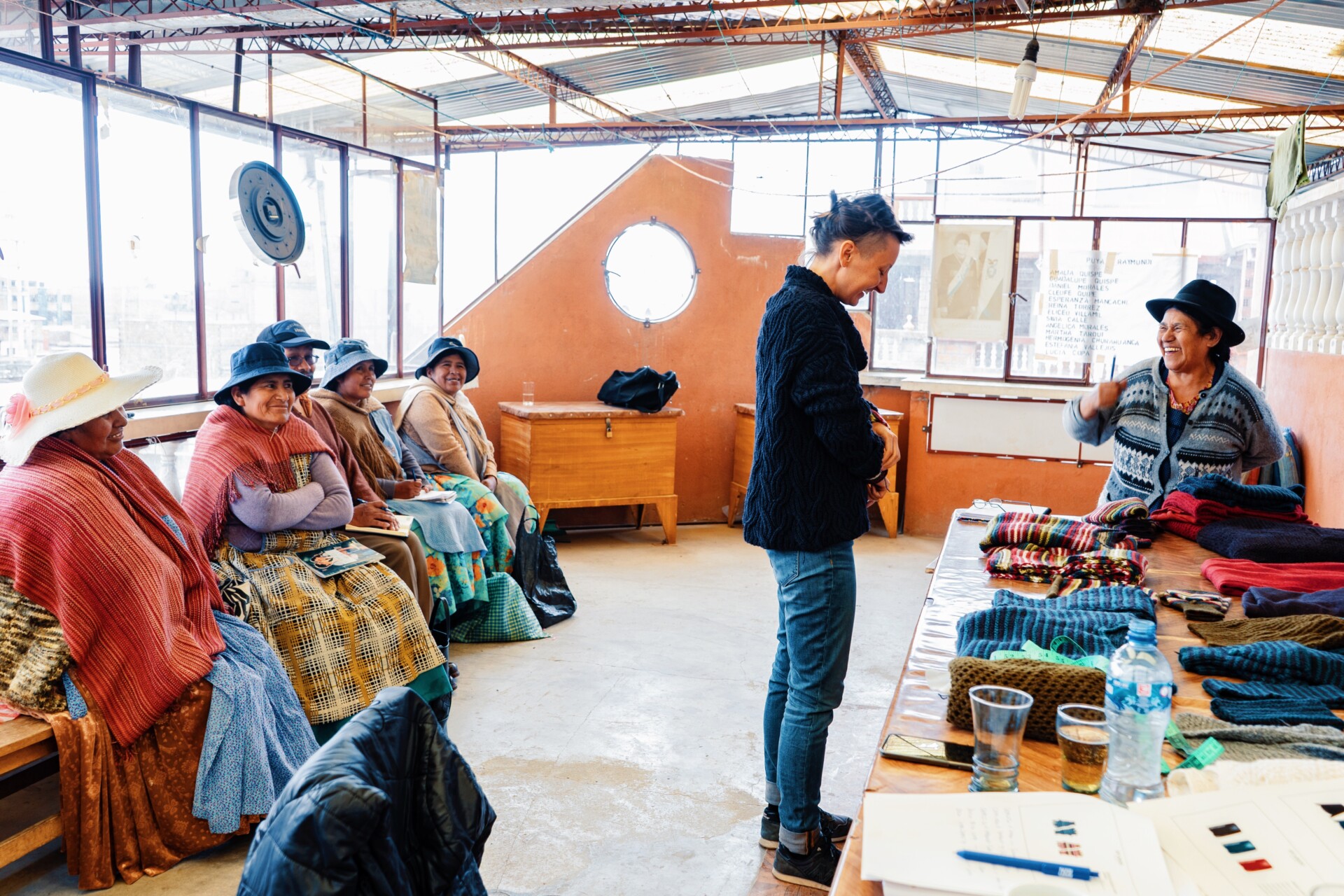
“Hecho En Bolivia”
Upon arriving at my placement in La Paz, I spent a whole month photographing every single alpaca garment and handicraft in ASARBOLSEM for the new product catalog.
Marked on every product is “Hecho En Bolivia” (Made in Bolivia).
What a stark contrast from what I’m used to seeing in the malls of multinational brands back home. But even more, this phrase is a rare sight in the field of International Development.

To complete the last component of my International Development degree, I arrived in Bolivia this September with little to no idea that I’d be fulfilling my dream of working for a Fair Trade textile and handicraft non-profit organization. My mandate changed last minute – for the better.
Founded in 1989, Asociacion Artesanal Boliviana « Señor De Mayo » (ASARBOLSEM) strives to provide fair employment and artisanal training to marginalized women from Indigenous backgrounds and gender-abuse situations, as well as those with disabilities [1]. By uniting artisan groups across the country, the organization has advanced ethical business practices, gender equality, cultural preservation, and economic empowerment in the past 30 years. Today, ASARBOLSEM exports to over 8 countries around the world and employs over 200 artisans across the country where 95% are women (often single mothers with children) [2].
While Fair Trade [3] is an international intervention to combat exploitative trading and forced labour through fair employment, ASARBOLSEM took a step further to empower a cultural change in society. Granted its World Fair Trade Certification, all levels of the organization are directly managed by local employees. By providing employment opportunities to women, who are often entitled to men and thus frequently subjected to domestic violence in the traditional machismo culture [4], they are empowered to be independent with a stable income. People with disabilities are also given a doorway out of poverty in a country with little to no accessibility services [2].


Thus, behind the tag of “Hecho En Bolivia” are stories of women rising up from marginalized situations using their gifted crocheting hands. The tag also signifies the conservation of traditional handicraft techniques that are increasingly replaced in the tourist markets by bootleg souvenirs mass produced in China [5].
But beyond the sweaters and ceramic pots is the development program that is entirely “Hecho En Bolivia”. From the founding idea to its organizational management to every alpaca thread, every layer of ASARBOLSEM was created and wove together by Bolivians, for Bolivians.
ASARBOLSEM stands out as a development intervention independent from foreign aid and Western intervention. In contrast to most international social enterprises that are founded and managed by westerners and implemented abroad, ASARBOLSEM is 100% built by the local community using local cultural knowledge. While ASARBOLSEM uses external funding from external NGOs such as CECI for larger projects (such as attending international fairs or hosting educational training for youth), the organization is independent and fully self-sustaining.
So perhaps that is what “International Development” should look like – locally built, locally sustained, and locally impactful solutions to worldwide issues. A framework that allows for self-determination and fully realized local capacity – the key to effective sustainable development.
